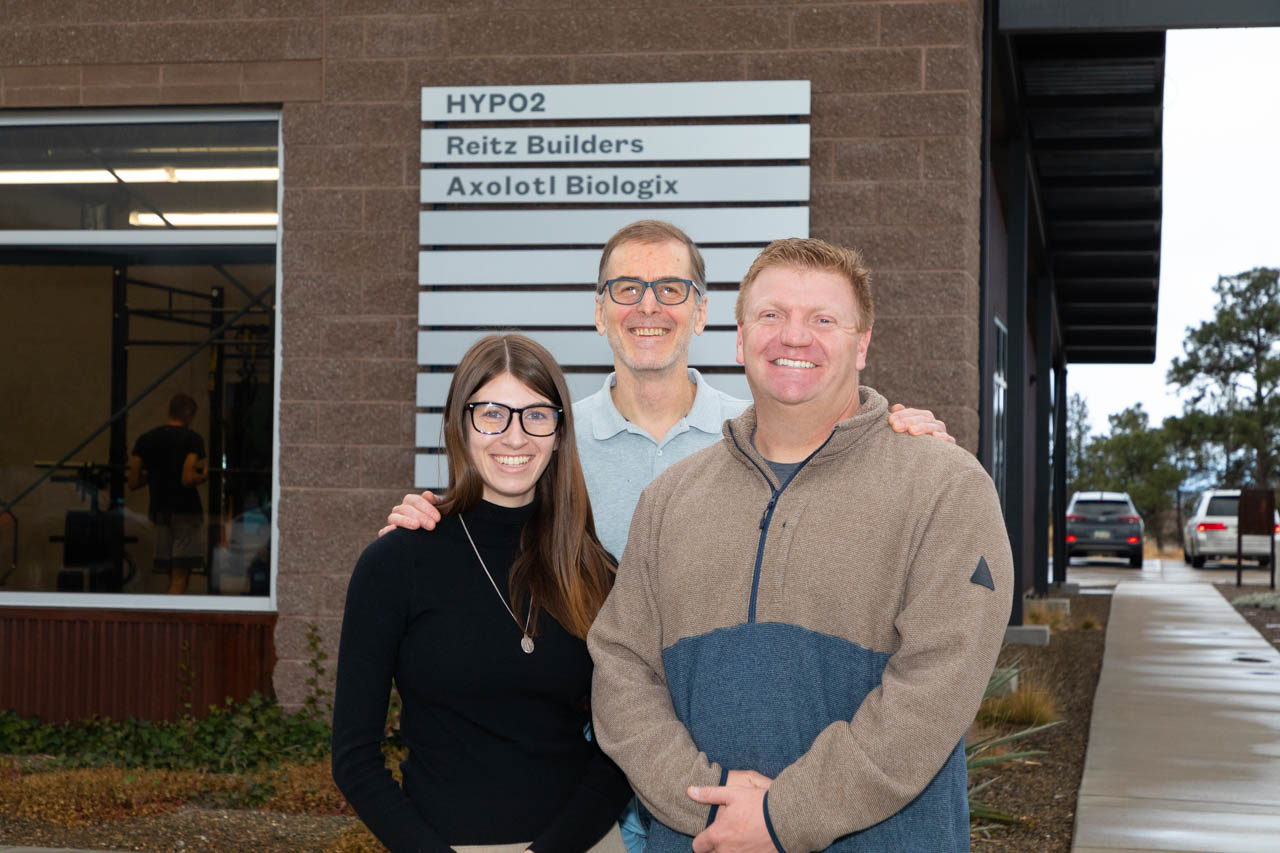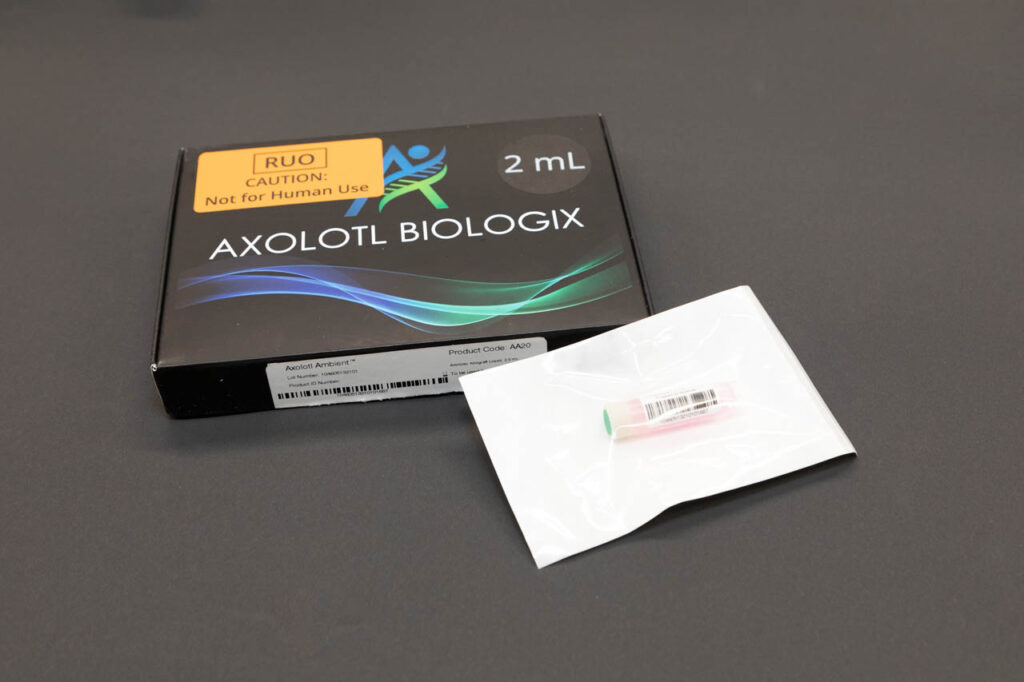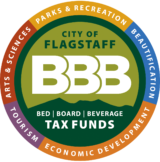The Business of Regeneration
Popular online for its cute, fringed-framed face, the axolotl salamander is known for its amazing regenerative capabilities. These capabilities are what inspired the original owners of Axolotl Biologix to use its name for their (human) biological tissue regenerative medicine company.
Recently having undergone something of a regeneration itself (brought on by both the COVID-19 pandemic and a change in its ownership structure) Axolotl Biologix is a Flagstaff-based company and Moonshot at NACET collaborator. The company uses human tissue to create medical products that encourage the body to repair itself. All of the research and development, scientific, and clinical team members at Axolotl are right here in Flagstaff.
 Regenerative Medical Products
Regenerative Medical Products
Currently, the company has two distinct product lines. Dr. Aaron J. Tabor, Axolotl’s Vice President of Clinical Operations, explains:
“One is a product line that comes from the placental tissue of consenting mothers in which we create what we call our ‘Axolotl DualGraft’ product, and that DualGraft is a structural membrane that can be used as a wound covering for patients that have a variety of types of wounds.”
This product is what the FDA calls an HCT/P (human cell and tissue-based product), designed and regulated as a tissue-based structural covering. Essentially, it is used to cover a wound, keeping potentially harmful microbes out, while also exhibiting properties that have been shown to aid in wound healing.
The second product is in an FDA Investigational New Drug (IND). Tabor describes this product as follows:
“We take cells from the placental tissue and we culture those cells and those cells, through growing in an incubator, release all these growth factors in a solution. We then take that solution with all those growth factors and use it for orthopedic applications such as ankle arthritis.”
Though still in the investigational phase, the intent of this drug would be to administer it by injection, decreasing inflammation in the joint and then stimulating the body to repair itself. Axolotl’s goal is to have this product approved and available for use in people in the next 3-5 years.
Local Business Support
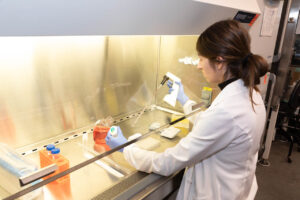 Tabor describes Axolotl as transitioning from start-up to small business. Currently the company has about 10 full time employees—half residing in Flagstaff, and the other half working remotely around the country. After seeing some initial successes in its first two product lines, Axolotl is beginning to explore additional products to add to their portfolio, which means more staff. “We know that we’re going to have to bring more researchers into the lab,” Tabor explains, “more folks in the clinical support side, more quality technicians from the compliance components of the organization. So in the next year, we’re at this point slated to bring on 10 new individuals.”
Tabor describes Axolotl as transitioning from start-up to small business. Currently the company has about 10 full time employees—half residing in Flagstaff, and the other half working remotely around the country. After seeing some initial successes in its first two product lines, Axolotl is beginning to explore additional products to add to their portfolio, which means more staff. “We know that we’re going to have to bring more researchers into the lab,” Tabor explains, “more folks in the clinical support side, more quality technicians from the compliance components of the organization. So in the next year, we’re at this point slated to bring on 10 new individuals.”
The business resources available in Flagstaff have aided the company’s growth. Axolotl’s laboratory is housed at the NACET (Northern Arizona Center for Entrepreneurship and Technology) campus, and the business is a participant in the Moonshot program. According to Tabor, “the facility itself allows for expansive growth,” and “the ability to grow and some of the support services… have been very, very, very favorable for us.”
Tabor notes that the City of Flagstaff has also been extremely helpful and collaborative. “The City has always asked a company like us and others, what do you need? What are things that we can be doing that help your organization build and subsequently help Flagstaff as a community?”
Those collaborative relationships have led to positive change such as regulator guidance or changes in the NACET tenant handbook that help with FDA compliance. These types of changes don’t just benefit Axolotl, but will also help other companies that need to meet FDA compliance standards in the future.
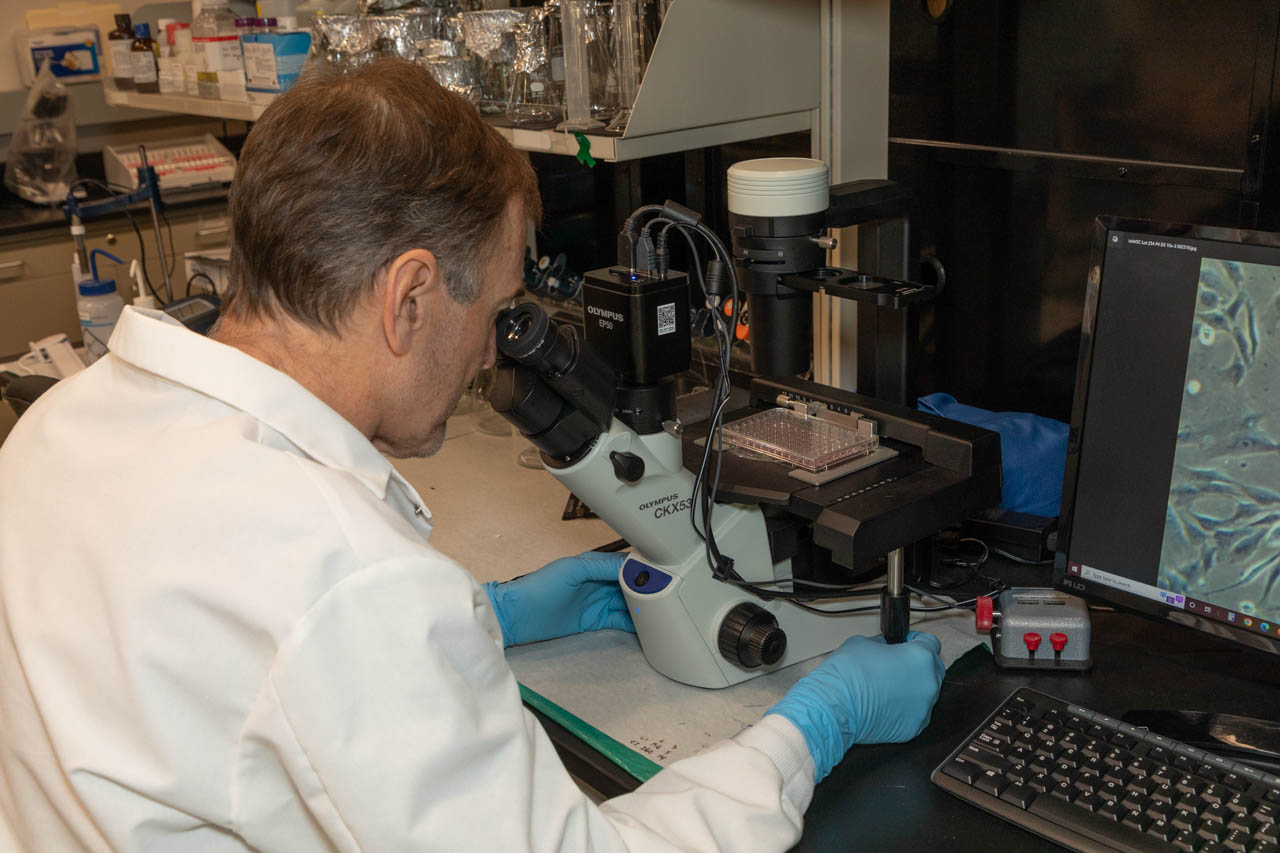
Flagstaff Community
Being located at the NACET campus on McMillan Mesa in Flagstaff has other advantages as well. With Buffalo Park right down the road, it’s easy for the team to get out of the office and replace conference room meetings with “walk meetings.” “We can achieve just as much walking around Buffalo Park as we can sitting around a board table in many instances when it comes to brainstorming and so forth,” Tabor says.
It’s not just Flagstaff’s beautiful outdoors that make it a great place for a biotech business like Axolotl. When asked what he likes about doing business in the Flagstaff community, Tabor told us the answer was right there in the question. According to Tabor,
“The beauty of Flagstaff is how interconnected we all are. We’re one degree separated from everybody in this town, and it always serves a great purpose to have those connections as such that it opens up doors and flourishes opportunity. The community is the beauty of doing business here in Flagstaff.”
One of the benefits of that one degree of separation, as Tabor sees it, is that businesses are less guarded and more open to mutually beneficial collaborations.
 Most of Axolotl’s team has been in Flagstaff for many years, and its members have built community connections that have proved beneficial. Both the university, where Tabor and Axolotl’s chief science officer have ties, and the community college are huge assets. NAU is part of the supplier program for Axolotl’s research and development, and the team’s scientists are current students or recent graduates of either NAU or CCC.
Most of Axolotl’s team has been in Flagstaff for many years, and its members have built community connections that have proved beneficial. Both the university, where Tabor and Axolotl’s chief science officer have ties, and the community college are huge assets. NAU is part of the supplier program for Axolotl’s research and development, and the team’s scientists are current students or recent graduates of either NAU or CCC.
When it comes to biotechnology research more broadly, Tabor sees Flagstaff as a developing place for the industry. “I think the more that we bring companies and notoriety or at least awareness to this type of community, you’re going to see additional companies that come, and it just becomes a snowball effect,” Tabor explains.
For Tabor, Flagstaff is an excellent place to be and to start a business: “It’s just a great, great place to live, and because the infrastructure is occurring that the City is building here with Moonshot at NACET, why wouldn’t you want to be here in Flag to start a business?”
Axolotl is now a wholly-owned subsidiary of the Carmell Corporation


